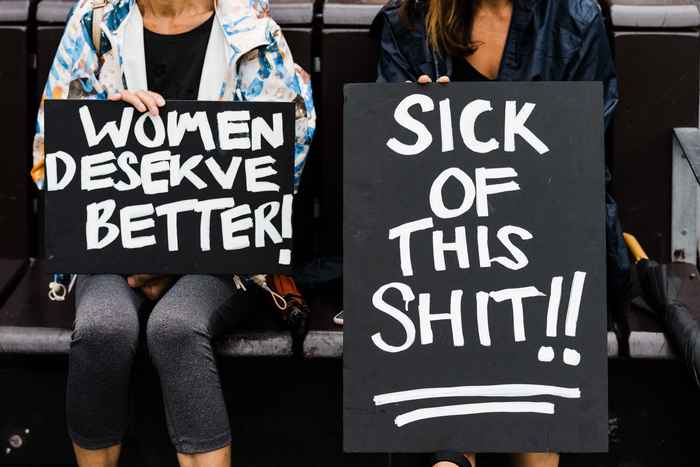Can’t You Take a Joke?: Humorlessness as a Moral Vice
- Date
- 15 February 2023
- Time
- 16:00

We’re often quick to point fingers at people who fail to find humor in themselves. And our accusations have a moral tinge: we decry people for being sanctimonious buzzkills, and command them to ‘get over themselves’. But are these reactions justified? And what, if anything, justifies them? My aim in this paper is to answer these questions. I’ll argue that humorlessness involves making a morally unacceptable comedic exception for oneself in a way that is both self- and other-disrespecting. Nevertheless, it follows from my account that not all failures to find humor in oneself constitute instances of humorlessness: we aren’t making a morally unacceptable exception for ourselves when we laugh at jokes that genuinely call into question our equal moral standing. I’ll then explore what implication this account has for accusations of humorlessness in oppressive social contexts, and I’ll argue that one of the harms of oppression is that it makes having a sense of humor towards oneself morally risky.
Jordan MacKenzie is an assistant professor of philosophy at Virginia Tech. Before coming to VT, she completed a postdoctoral fellowship at the NYU Center for Bioethics and a PhD in philosophy at UNC Chapel Hill. She is interested in ethical issues related to self-knowledge and self-deception, the rational defensibility of seemingly irrational emotions like survivor guilt and grief, and our ethical obligations at the end of life. Her work has appeared in venues such as Philosophical Quarterly, Bioethics, The Journal of Moral Philosophy and The Journal of the American Philosophical Association.
The Philosophy and Public Affairs group at the University of Amsterdam has organised an exciting series of colloquia for the upcoming year. The events take place in the Faculty Room at the Department of Philosophy. The events start at 16:00 and end around 17:30.
Papers will be pre-circulated to those planning to attend. For more information about attending the event and receiving the papers, please contact Gulzaar Barn at g.k.barn@uva.nl.
It is also possible to join via Zoom, using the following link: https://uva-live.zoom.us/j/3122793302
The full schedule is below. Please scroll down for more detailed information about our next two sessions.
15 February, 16:00
Dr. Jordan Mackenzie (Virginia Tech)
Can’t You Take a Joke?: Humorlessness as a Moral Vice
22 February, 16:00
Prof. Frieder Vogelmann (Freiburg)
Truth as Force: A Materialist Picture
15 March, 16:00
Henrike Kohpeiß (Freie Universität Berlin)
Bourgeois Coldness
5 April (all-day workshop, further information to be released)
Prof. Christoph Menke (Goethe University Frankfurt)
A Theory of Liberation
26 April, 16:00
Joris Roelofs (UvA)
A Political Phenomenology of Improvisation
17 May, 16:00
Dr. Maeve McKeown (Rijksuniversiteit Groningen)
7 June, 16:00
Dr. Jamila Muscat (Utrecht University)
The next session (15 February) will be on a paper by Dr. Jordan Mackenzie (Virginia Tech), with a response by Dr. Thomas Nys (UvA).
Abstract
We’re often quick to point fingers at people who fail to find humor in themselves. And our accusations have a moral tinge: we decry people for being sanctimonious buzzkills, and command them to ‘get over themselves’. But are these reactions justified? And what, if anything, justifies them? My aim in this paper is to answer these questions. I’ll argue that humorlessness involves making a morally unacceptable comedic exception for oneself in a way that is both self- and other-disrespecting. Nevertheless, it follows from my account that not all failures to find humor in oneself constitute instances of humorlessness: we aren’t making a morally unacceptable exception for ourselves when we laugh at jokes that genuinely call into question our equal moral standing. I’ll then explore what implication this account has for accusations of humorlessness in oppressive social contexts, and I’ll argue that one of the harms of oppression is that it makes having a sense of humor towards oneself morally risky.
Jordan MacKenzie is an assistant professor of philosophy at Virginia Tech. Before coming to VT, she completed a postdoctoral fellowship at the NYU Center for Bioethics and a PhD in philosophy at UNC Chapel Hill. She is interested in ethical issues related to self-knowledge and self-deception, the rational defensibility of seemingly irrational emotions like survivor guilt and grief, and our ethical obligations at the end of life. Her work has appeared in venues such as Philosophical Quarterly, Bioethics, The Journal of Moral Philosophy and The Journal of the American Philosophical Association.